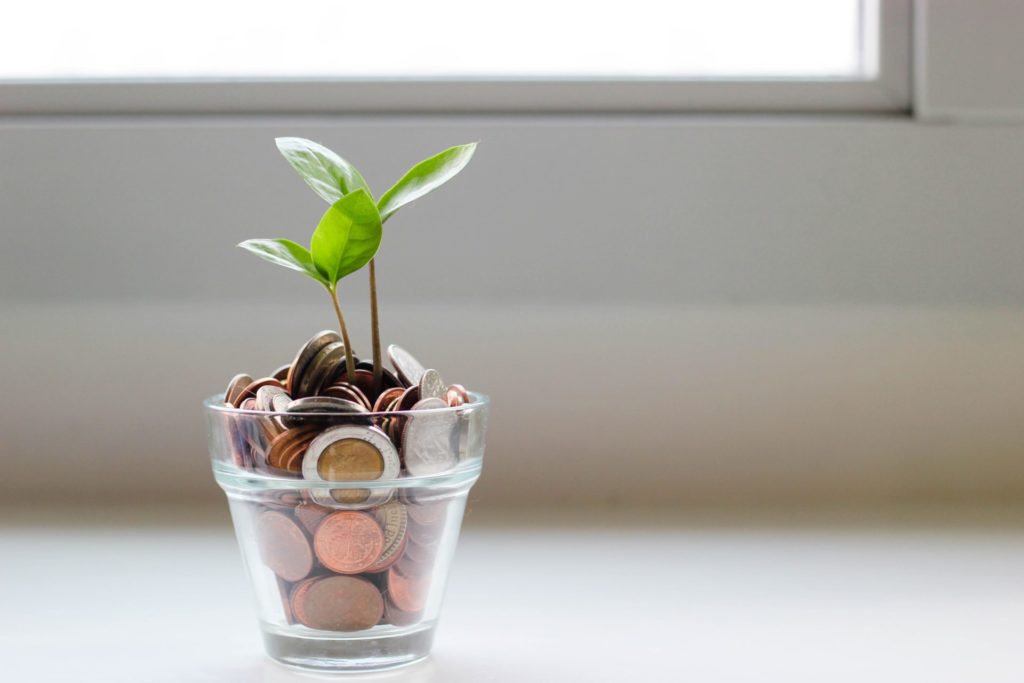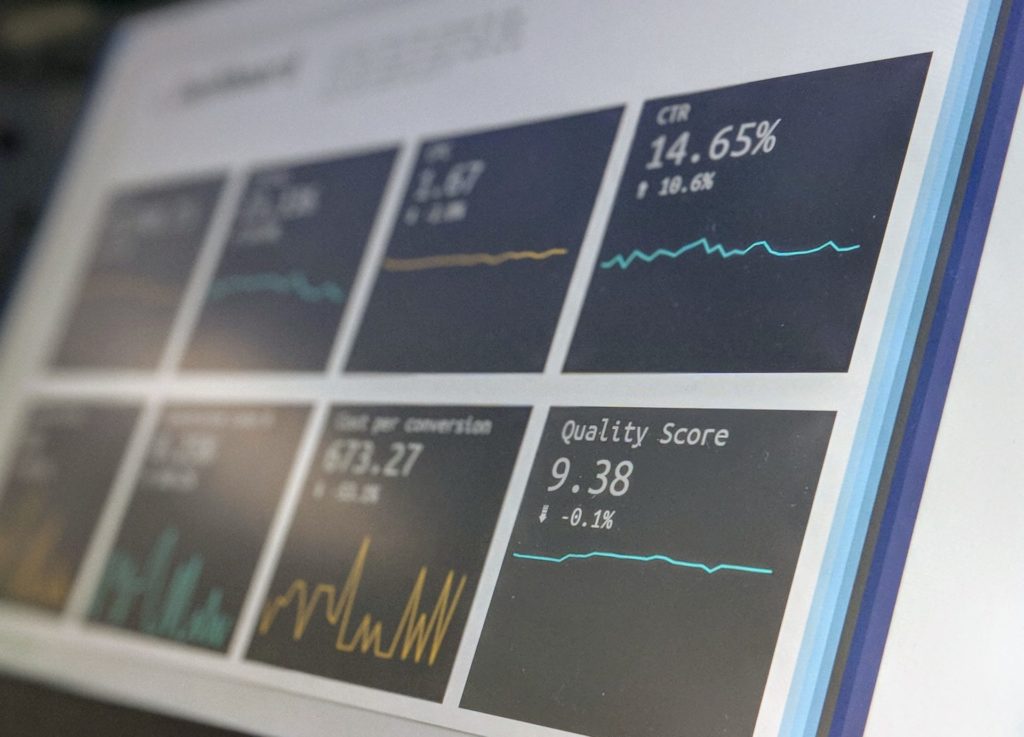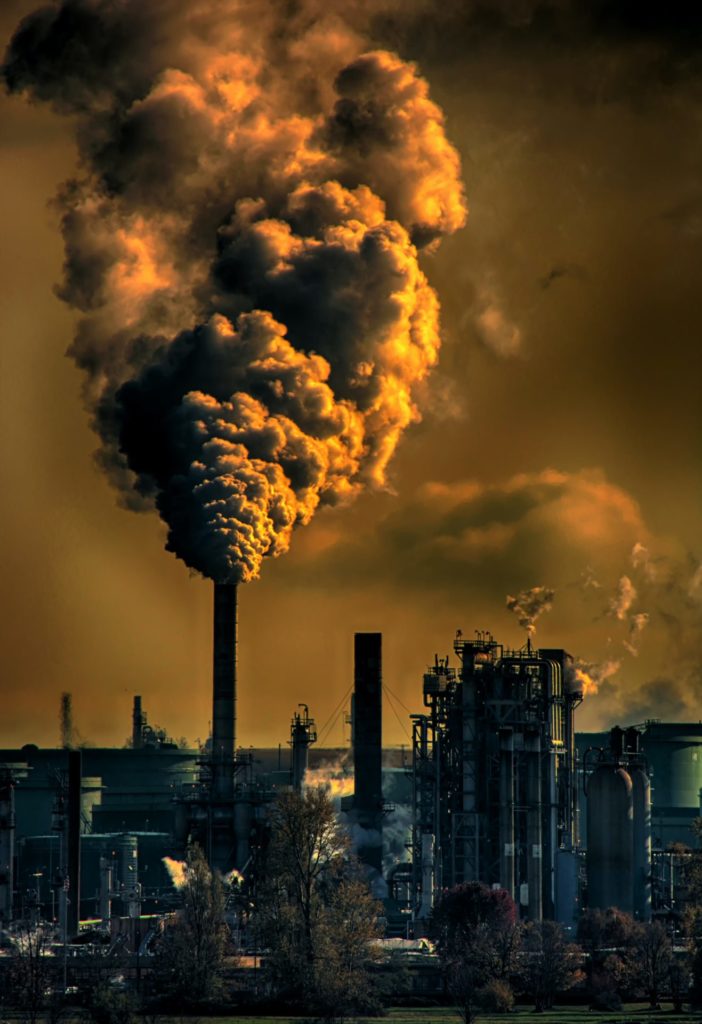Is Degrowth the Answer?

Current Economic Growth is Unsustainable
The current state of the world represents a highly complex environment where human needs, desires, activities, and technology are simultaneously evolving. Over the past decades, we have observed a sharp increase of human activity that has contributed to the phenomenon of the Great Acceleration. This has shown that economic growth is closely linked to increases in production, consumption and resource use (EEA, 2021). Such rapid growth is associated with the detrimental effects on the natural environment and human health. Environmental degradation is now a pressing consequence of the impact of human activity increasing at an unsustainable rate.
The destructive power of our economic activities and the unaccounted environmental cost raises the need for governments and leaders to act. As a result, Agenda 2030 has been introduced (among other regulations) which aim to confine current economic activities within social and environmental boundaries. For instance, the EU Taxonomy aims to prevent greenwashing by helping investors make more informed choices about where to put their money. At the same time, even with all these regulations in place, creating real change requires more radical transformation and a rethinking of our economic actions.
Our current economic system is based on linear principles; it is predominantly concerned with optimisation and cost-benefit efficiency. The core of this model is focused on exploitation, value creation, and inevitably — waste. Given that profoundly unsustainable premise, the solution might lie within a transition towards an economic model based on more sustainable production and consumption. However, there are those who believe that an even more radical shift is required in order to reverse the drastic impact imposed by the status quo and its incompatibility with progressive economics. In this article, we will take a look at one such approach — the degrowth theory – and explore how it is relevant in the current state of the world and human civilisation.

What is the 'Degrowth' theory?
The broad definition of degrowth is the process of shrinking, rather than growing, economies, which enforces the minimised use of the world’s dwindling resources. The theory is based on the contrast to a growth-centred economic model, which describes the pursuit of infinite growth and unsustainable development as the main causes of social and ecological harm.
Although early ideas regarding environmental preservation and the excessive exploitation of natural resources emerged at the end of World War II, it was not until the early 1970s that the concept of degrowth took off (Duverger, 2020). The term was first introduced by Nicholas Georgescu-Roegen in his publication of The Entropy Law and the Economic Process.
Numerous economists, ecologists and philosophers further reiterated the ideas introduced in those initial sources to further develop theories. As a result, the degrowth theory has come to be defined by a few key principles. First, the majority of the resources that people rely on become accessible through ecosystems and are limited. Therefore, each withdrawal of scarce or non-renewable resources not only causes an irreversible impact on the environment, but also jeopardises the long-term survival of humanity. The conclusion drawn by the theory of degrowth is that infinite growth, both demographic and economic, is impossible given that we live in a finite world.

Why is Degrowth important?
Despite its conception in the 1970s, this radical economic theory has become even more relevant in our modern world. As fears over climate change and other global threats facing the planet increasingly escalate, speculation around the degrowth theory has been gaining more and more traction. Some economists believe the only way to save our planet is to radically scale back global consumption.
Modern degrowth experts argue that society’s current economic model is unsustainable. The main argument is that if the ultimate goal is continuous growth, then this will inevitably lead to climate catastrophe. The solution suggested by the degrowth theory is essentially to move away from the assumption that growth is necessarily good by definition.
Although regarded as a shadow concept in discussions surrounding the modern economy, the fundamental principles of the degrowth theory are closely linked to the current goals of sustainable development.
As GDP is the most commonly used tool for measuring growth, it is no wonder that the progress of the world’s economic system is constantly pushing towards the consumption of natural resources. This emphasis on consumption is the main reason behind damaged ecosystems and pollution caused by burning fossil fuels. In fact, it is mainly due to these economic activities and their externalities on the environment that global warming, among many other environmental issues such as the degradation of biodiversity or air pollution, has become so important.
When it comes to degrowth, the idea is that we must stop excessive production at the expense of the natural environment and focus on producing better products with less energy. Degrowth has inspired various development principles, such as eco-design, permaculture, and agroecology. It has also contributed to the implementation of tools such as LCA (life cycle analysis) and ESG materiality assessments. These principles and tools help adapt our ecological footprint to match the limited resources available. Ultimately, the main goal of the degrowth movement is to redefine our economic model by putting resilience at its core.
How does Degrowth relate to the Circular Economy?
Degrowth as it exists now will be a voluntary process. Detractors claim that economic growth has given our society every facility from cancer treatments to indoor plumbing. The list of benefits associated with economic growth is ongoing. Experts argue that economic growth creates freedom from poverty and longer life expectancies (Piper, 2021). Due to its radical perspective, there is a lack of agreement and action on the degrowth theory.
Therefore, the theory is mainly treated as the basis for more awareness of a finite world, and the limited nature of our resources. Based on the idea that only a reduction in global production and consumption can ensure the future of humanity, the principles of degrowth serve as guideline for more conscious consumer behaviour. Practical degrowth actions might include buying less stuff, growing your own food, and using decommissioned facilities instead of building new infrastructure.
When approached from this angle, the basis of the degrowth theory resembles the principles of a more innovative and relevant economic model — the circular economy.
In a circular economy, the ultimate goal is to maintain the value of the products and materials for as long as possible. Waste and resource use are minimised, and when a product reaches the end of its life, it can be reused to extend its value. This circular model has the potential to bring major economic benefits; contributing to innovation, growth, and job creation (European Commission, 2015).
A circular economic framework aims to provide a sustainable, low carbon and resource-efficient economy, while also encouraging competitiveness in the long term. In the pursuit of generating sustainable competitive advantage, the circular economy offers numerous benefits. New business opportunities are created by the circular model through more innovation and efficient production and consumption. In doing so, it manages to boost competitiveness and protect businesses, all while promoting resource preservation – especially those that are scarce and subject to volatile prices. Collaboration on the transitional path to a circular economy will cultivate an environment for social integration and cohesion, and create job opportunities at all skill levels. Finally, the circular economy model reveals an untapped energy-saving potential that can help avoid the irreversible damage caused by using up resources at a rate that exceeds the Earth’s capacity to renew them.

Global economic crises, such as pandemic-induced inflation or the 2008 recession, showed us that without a concerted effort to make long-term changes, any fall in consumption is only temporary. Consumers are not the only ones to blame for this phenomenon though, since our entire global economy is built on a "take-make-waste" model. We extract natural resources and use them until they end up as waste. This unsustainable model is pushing our planet to the brink, driving the climate crisis and depleting the resources needed to support more equitable and thriving communities in the future.
A circular economy offers a $4.5 trillion economic opportunity by avoiding waste, generating business growth and creating employment opportunities.
To prevent the exhaustion of natural resources without hindering global economic growth, we need to act toward circular transition and break the link between economic well-being and environmental destruction.
Impact Hub Berlin’s mission is to empower entrepreneurs and organisations to create innovative solutions for people and the planet. We can all agree that the world’s greatest challenges will never be solved by one person or organisation alone. That’s why Impact Hub Berlin incorporates a systemic model with four ecosystems. With the uniform goal of accelerating innovation, each of the ecosystems circles around one main impact-driven concept. Diversity and inclusion, green tech, sustainable food ecosystem, and of course, a circular economy.
Sustainability entrepreneurs have a key role to play in making circularity our new reality. Supporting innovative ideas for high-quality and accessible products and services that create zero to minimum waste, the Circular Together programme was created. The programme offers support to ventures that are scaling enterprising initiatives to drive sustainable consumption and production across fashion, food, and technology, among other industries. The Circular Together is intended to help such startups grow, and develop innovative solutions to the outdated economic model by focusing on the circular transition.
Apply now for our Circular Together ProgrammeSources
Belmonte-Ureña, L. J., Plaza-Úbeda, J. A., Vazquez-Brust, D., & Yakovleva, N. (2021, July). Circular economy, degrowth and green growth as pathways for research on sustainable development goals: A global analysis and future agenda. Ecological Economics, 185, 107050. https://doi.org/10.1016/j.ecolecon.2021.107050
European Centre for Governance in Complexity & EEA. (2021, January 21). Growth without economic growth. European Environment Agency. Retrieved September 27, 2022, from https://www.eea.europa.eu/publications/growth-without-economic-growth
Masterson, V. (2022, June 15). Degrowth: what’s behind this economic theory and why it matters today. World Economic Forum. Retrieved September 27, 2022, from https://www.weforum.org/agenda/2022/06/what-is-degrowth-economics-climate-change/
McKinsey & Company. (2016, October). The circular economy: Moving from theory to practice, McKinsey Center for Business and Environment Special edition. McKinsey. Retrieved September 27, 2022, from https://www.mckinsey.com/~/media/McKinsey/Business%20Functions/Sustainability/
Our%20Insights/The%20circular%20economy%20Moving%20from%20theory%20to
%20practice/The%20circular%20economy%20Moving%20from%20theory%20to%20practice.ashx
Martin J Head, Will Steffen, David Fagerlind, Colin N Waters, Clement Poirier, et al.. The Great Acceleration is real and provides a quantitative basis for the proposed Anthropocene Series/Epoch. Episodes Journal of International Geoscience, Seoul National University, 2021, 10.18814/epi- iugs/2021/021031 . hal-03437341, https://hal.archives-ouvertes.fr/hal-03437341/document
Rockström, J. (2017, January 10). 5 reasons why the economy is failing the environment, and humanity. World Economic Forum. Retrieved September 27, 2022, from https://www.weforum.org/agenda/2017/01/5-reasons-why-the-economy-is-failing-the-environment-and-humanity/
Schröder, P., Bengtsson, M., Cohen, M., Dewick, P., Hofstetter, J., & Sarkis, J. (2019, July). Degrowth within – Aligning circular economy and strong sustainability narratives. Resources, Conservation and Recycling, 146, 190–191. https://doi.org/10.1016/j.resconrec.2019.03.038
UBS Editorial team, & Spence, M. (2022, January 10). Why continued growth in our current economic system is unsustainable? UBS Nobel Perspectives. Retrieved September 27, 2022, from https://www.ubs.com/microsites/nobel-perspectives/en/latest-economic-questions/economics-society/articles/unsustainable-economic-growth.html
Hickel, Jason (2019) “Degrowth: a theory of radical abundance”, real-world economics review, issue no. 87, 19 March, pp. 54-68, http://www.paecon.net/PAEReview/issue87/Hickel87.pdf